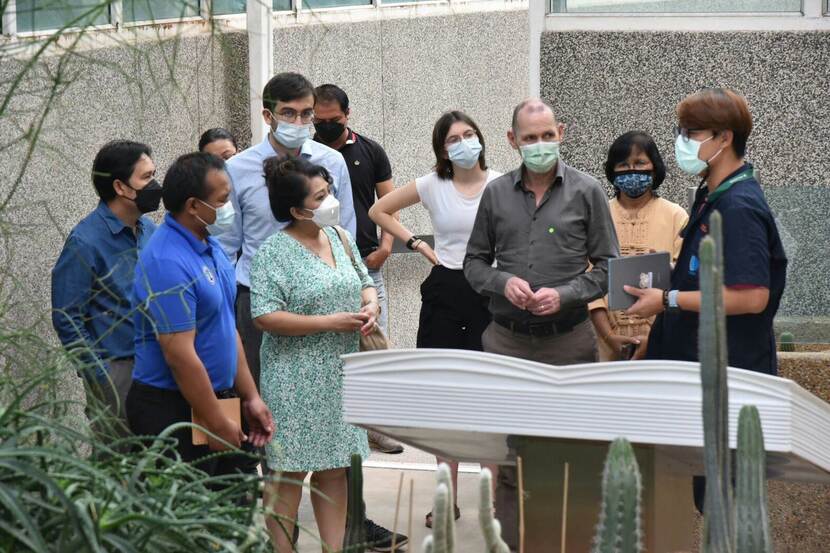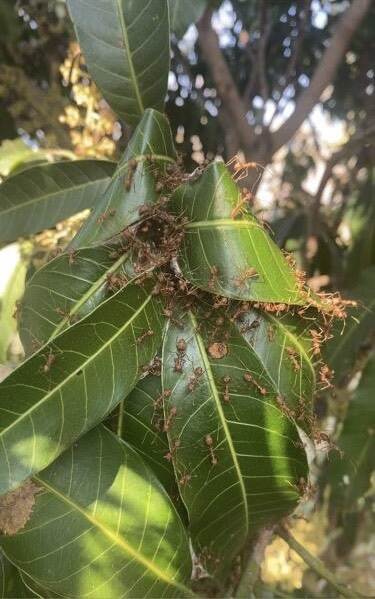Thai – Dutch Collaboration on Ant Farming R&D Project Kick Off
TISTR Thailand together with GreenAnt, a Dutch start-up, have established the first Thai – Dutch Ant Farming R&D Project.

“The weaver ant (Oecophylla smaragdina) is used as a sustainable source of protein and as a natural pesticide. Traditional protein production is a major cause of deforestation and is also extremely water consuming. Instead, the production of ant protein is significantly more resource-efficient compared to traditional protein sources such as meat. In addition, ants can significantly reduce or completely eliminate the need for pesticides. Weaver ants are cheap, available, and a sustainable source of protein for food and feed. “These ants can transform biomass into protein with an efficiency that spans from 29% to 39%, whereas cows only have an efficiency of 7.3%” said Mario Edoardo Simmaco Founder and CEO of GreenAnt, a Dutch start-up, at the briefing meeting about the Project in January 2022.
The Project briefing meeting took place at Lamtakong Research Station, Pak Chong District, Nakorn Ratchasima Province. Mr. Sayan Tanpanich, Deputy Governor Research and Development for Bio-Industries at TISTR and Dr. Gijs Theunissen the new Dutch Agricultural Counsellor in Thailand together with researchers and experts from the Thailand Institute of Scientific and Technological Research (TISTR) attended the meeting to share their knowledge and experiences with GreenAnt and local agricultural extension officers.

“Newly planted mango trees will be the future habitat of the weaver ants and protect these trees against pests. The newly planted trees will contribute to the global reduction of carbon. Every kilogram of CO2 stored by a newly planted tree will more or less correspond with one “GreenAnt Coin”. We will use blockchain technology, so that the buyer of carbon credits from GreenAnt can check at any time that the tree actually exists and stores the carbon. In this way, it has to guarantee long-term reforestation and also makes CO2 a tracable asset” said Mario.
Weaver ants are one of the most valued types of insects eaten by humans (entomophagy). Weaver ants can be utilized both indirectly (in feed) as directly as a food source, since the ants (especially the ant larvae) are edible for humans and are high in protein and fatty acids (Raksakantong, Meeso, Kubola, & Siriamornpun, 2010). So Weaver ants do not only possess a high potential to indirectly increase crop production and quality (food safety) by means of pest control, but the ants may also contribute directly to food security (Offenberg & Wiwatwitaya, 2009).